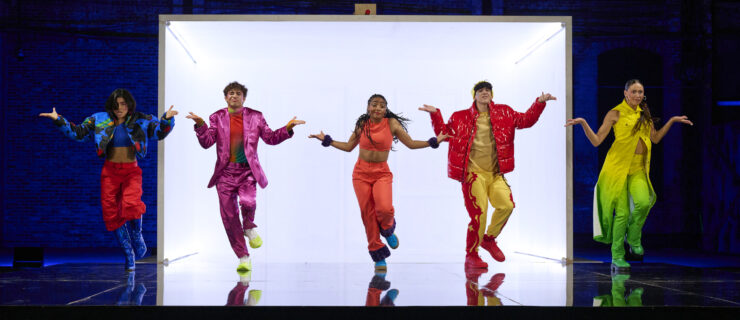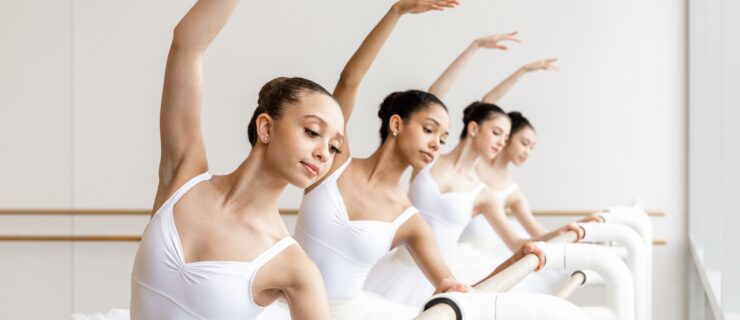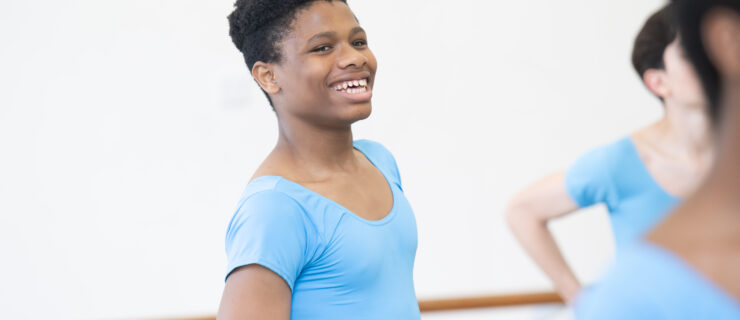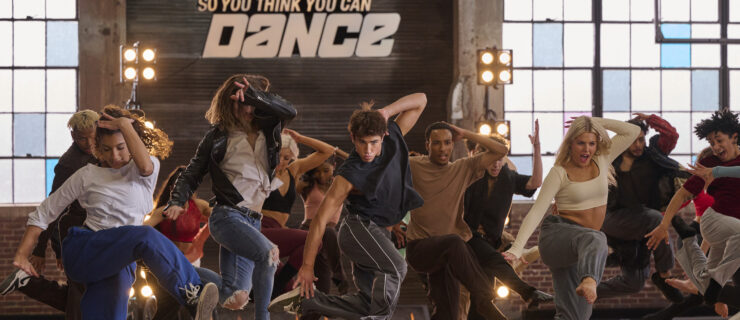Views from the Top: What it's Really Like to Be a Comp Celebrity
To her high school classmates, Sarah Pippin was a regular girl: a good student and a friendly face around campus. But on the weekends—at dance competitions and conventions across the country—Pippin was a bona fide celeb, adored by her fellow competitors and faculty members alike.
By the time she graduated high school, Pippin had racked up major accomplishments, including performances with Janet Jackson and Shaping Sound, a role on Dance Spirit‘s own reality series “Road to Nationals,” titles such as New York City Dance Alliance’s National Mini, Junior and Senior Outstanding Dancer, and, most recently, a college scholarship on behalf of Dance Magazine through the NYCDA Foundation.
There’s no doubt that Pippin, now a freshman at The Juilliard School, is among a rising generation of competition and convention stars. And while “celebrity” isn’t a term they’d give themselves, you know who they are. These dancers are adored by legions of real-life fans hoping to watch and dance alongside them, not to mention the thousands of social media followers ready to double-tap everything they post.
Being so popular on the circuit has its perks—traveling every weekend, internet fame, working with big-name choreographers—but it also comes with its share of struggles. Here’s a peek at what it’s really like at the top.
Where Does the “Celebrity” Start?
From the faculty perspective, “A lot of the celebrity factor comes from dancers winning national titles and traveling with conventions,” says Ray Leeper, director of NUVO Dance Convention. “Suddenly they’re in the forefront, representing the event as the Best Dancer or Elite Dancer or whatever title they’ve earned. Plus, they’re assisting at the conventions on the weekends alongside the faculty.” And when all those enviable experiences are getting shared online, dancers can really rack up a following: “People anywhere can watch them and follow them,” Leeper says.
While a lot of the hype may seem like it starts online—Christina Ricucci, for example, a former Teen Best Dancer winner at The Dance Awards, has nearly 120,000 Instagram followers—it usually exists for a reason. These dancers aren’t just posting pretty pictures. They can really dance, too, and most are beloved because they have the personality to back up their moves. “Most choreographers or teachers know these kids because they’re brilliant,” says New York City Dance Alliance faculty member Joey Dowling-Fakhrieh. “Sure, they’re popular on social media, but they also have the chops to back it up.”
Under Pressure
To an outsider, the thought of being a so-called celebrity is a dream. But when you’re the one with adoring fans, you may feel differently. “You’re a role model,” says Ricucci. “People are constantly watching you, so you always have to be doing the right thing and making sure you’re setting a good example for everyone around you.” It can be a lot of added pressure.
“I’ve always felt as if I have to be a step ahead,” Ricucci adds. “You have to be able to pick up the choreography super fast, even if you’re not assisting and are just dancing on the floor. It can be hard, but the pressure ultimately pushes you to be a better dancer. The teachers don’t expect you to be perfect, but that’s something I’ve always strived for. It’s not necessarily a negative pressure—it makes me feel empowered to do my absolute best. Some teachers may have expectations, and some people in class may know me and be watching me, but I’ve found that no one puts more pressure on me than I put on myself.”
Ali Deucher performing at NYCDA (courtesy NYCDA)
Pippin agrees. “There’s definitely pressure that comes with being well known,” she says. “For me, it was about my own expectations. In the past, I put so much pressure on myself because my expectations were almost greater than I could meet. I struggled with that behind the scenes, and I started to fall out of love with dance because I was so concerned with technique and perfection. I lost sight of what was important. I had to learn to dance for myself and not for others.”
The Perks of Being a Standout
Still, there are plenty of perks that come with this star status. “Being well known by the faculty is definitely a privilege,” says Ali Deucher, 16, who trains at The Dance Club in Orem, UT, and is the current National Teen Outstanding Dancer for New York City Dance Alliance. “Being a go-to for a choreographer trains you to be a quick learner, and teaches you to be more alert in class. The teachers trust you and want to invest in you.” As Teen Outstanding Dancer, Deucher will travel with NYCDA this year. “I’m ecstatic to get to work closely with the choreographers I’ve been learning from for a long time, and I’m eager to inspire other dancers and be inspired by them,” she says.
That added face-time with faculty can even lead to serious career boosts. “A lot of teachers on convention work professionally,” says Leeper. “Many work on ‘Dancing with the Stars’ or ‘So You Think You Can Dance,’ which feature young dancers. Part of the reason those dancers have had those opportunities is because they’ve been exposed to those choreographers. I’ve done direct hires of dancers because I’ve known them since they were 8 years old and am familiar with how they dance and work. It’s a huge advantage for the dancers and the choreographers.”
But It’s Not All Touring and Talking Shop with the Teachers
Having a “famous” name or handle also requires having a thick skin. “Not everybody has been supportive,” says Ricucci. “Some people assume that if you’re just posting pretty pictures online, it means you don’t actually have real ability.”
Ricucci also had a tough time when, after years of being homeschooled, she returned to high school for her senior year. “People made fun of me—to my face—for having a lot of followers,” she says. “A lot of people judged me before they really knew me. They’d make jokes about me being ‘Insta-famous,’ and being ‘too famous to hang out with them.’ ” The payout is worth it, though: Ricucci has booked several jobs based off her social media presence alone.
The Bottom Line: Studio Time Beats Being a Convention Sensation
Dancers at the top should be cautious of getting too involved with convention life, Instagram domination and extra gigs if it means missing out on valuable studio training. “It can get very disillusioning,” Leeper says. “We see a lot of kids who think ‘OK, I’m trained now, so I’m just going to be convention-trained,’ and then they travel every weekend. That’s not training—it’s inspiration. Dancers can’t let their training fall by the wayside. They still have to show up and audition and be able to follow through. Someone can be Insta-famous or YouTube famous, but she still has to be able to execute her job properly.”
Being a strong solo dancer is great, but staying with your studio will benefit you when it comes time to audition professionally. “The real world is not just about being a soloist,” Leeper says. “You might dance as part of a chorus on Broadway, or with a group behind a recording artist, or as part of a ballet company. It won’t just be you then, so don’t let it just be you now.”
And at the end of the day, no number of “likes” or platinum trophies will complete your success as a dancer. “My self-worth is only determined by me, and my satisfaction comes from seeing my day-to-day growth—not by how many times I might get recognized in a class or how many ‘likes’ I might receive on a social media post,” says Pippin. “It’s great to be called out, but that should only serve to reinforce your work—not define it.”



